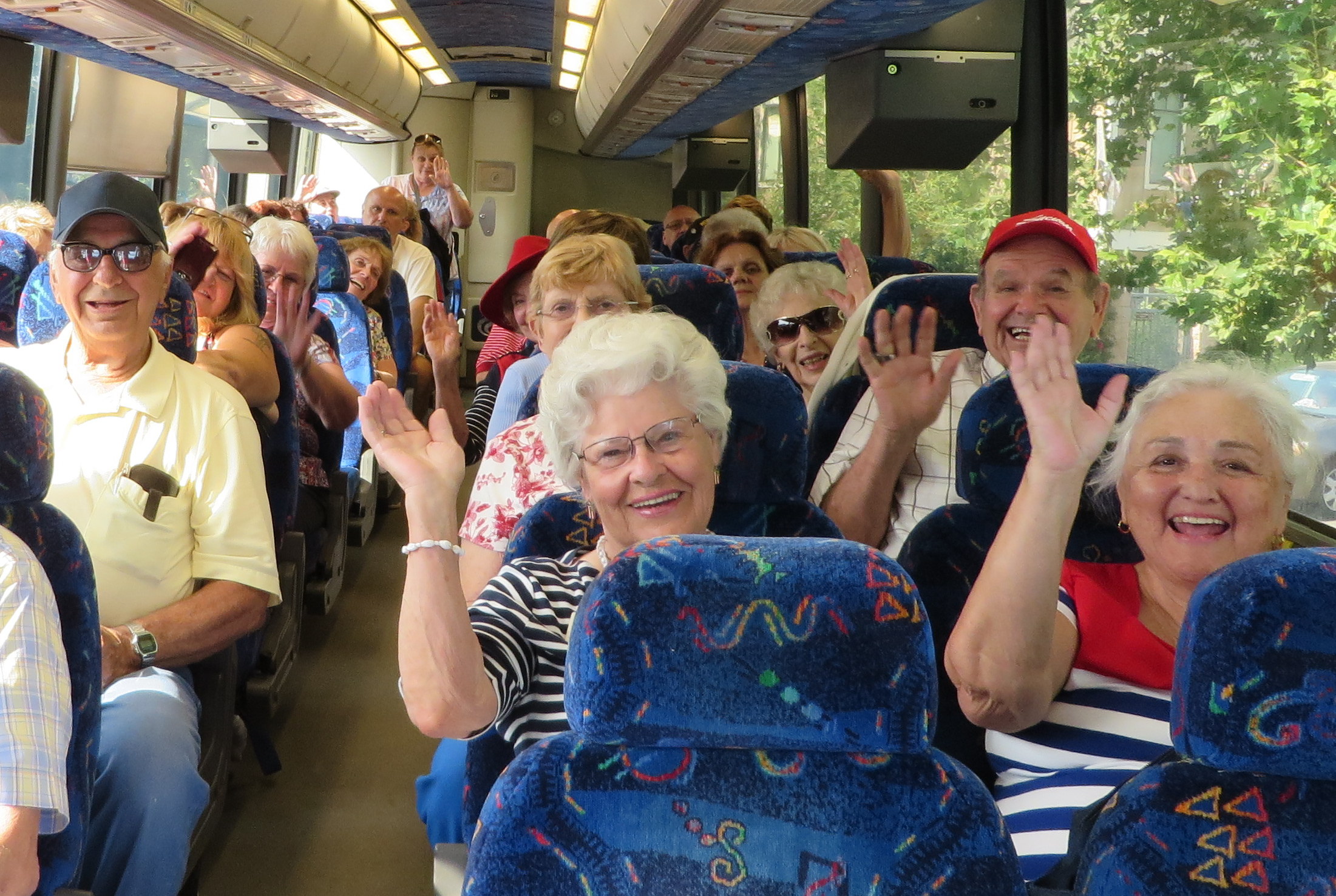Senior Travel Canada: Discovering the breathtaking landscapes and vibrant culture of Canada offers unparalleled opportunities for mature travelers seeking enriching experiences. From the majestic Rockies to the charming coastal towns, Canada caters to diverse interests and abilities, ensuring a memorable journey for every senior adventurer. This guide explores the best destinations, transportation options, accommodation choices, and activities tailored specifically for the needs and preferences of older travelers, promising a safe, comfortable, and fulfilling Canadian escape.
This comprehensive guide delves into the practicalities of planning a senior travel trip to Canada, covering everything from budgeting and health considerations to choosing the right accommodations and transportation. We’ll explore various destinations, highlighting their unique appeals and accessibility features, ensuring that your Canadian adventure is both enriching and manageable. Whether you’re drawn to the natural beauty of Banff National Park, the historical charm of Quebec City, or the vibrant urban life of Toronto, we’ll help you plan a trip that caters to your specific needs and interests.
Health and Safety Considerations for Senior Travelers in Canada: Senior Travel Canada
Planning a trip to Canada as a senior citizen requires careful consideration of health and safety aspects to ensure a smooth and enjoyable experience. Canada offers stunning landscapes and vibrant cities, but navigating potential health challenges and ensuring personal security is crucial for a worry-free vacation. This section Artikels essential precautions and resources available to senior travelers.
Travel Insurance and Emergency Contacts
Comprehensive travel insurance is paramount for senior travelers in Canada. Policies should cover medical emergencies, including evacuation and repatriation, as well as trip cancellations or interruptions due to unforeseen circumstances. Consider policies that specifically address pre-existing medical conditions. Before departure, compile a list of emergency contacts, including family members, doctors, and the local Canadian embassy or consulate.
Provide copies of this list to trusted individuals at home and carry a copy with you during your travels. This readily available information can be critical in case of an emergency.
Medication and First-Aid Supplies
Packing a sufficient supply of necessary medications is vital. Carry prescriptions in their original containers, along with a copy of your prescription. Inform your doctor about your travel plans and request additional medication if needed to cover any potential delays. Assemble a basic first-aid kit containing bandages, antiseptic wipes, pain relievers, and any other medications you regularly use.
Familiarize yourself with the location of the nearest pharmacies and medical facilities in your travel destinations.
Medical Emergency Resources in Canada
Canada has a well-developed healthcare system. In case of a medical emergency, dial 911 for immediate assistance. This number connects you with emergency medical services across the country. Many Canadian hospitals and clinics offer services in multiple languages. Be aware that while Canada has universal healthcare, it may not cover the costs for non-residents.
Travel insurance is essential to cover medical expenses. The Canadian government website provides a directory of healthcare services, and consular services can offer guidance and support in navigating the healthcare system if needed. Consider carrying a card with your blood type and any significant allergies clearly indicated.
Budgeting for Senior Travel in Canada

Planning a Canadian adventure as a senior requires careful budgeting to ensure a memorable and financially responsible trip. Factors like accommodation preferences, travel style, and chosen activities significantly impact the overall cost. This guide offers a step-by-step approach to crafting a realistic budget, highlighting cost-effective options and senior-specific discounts.
Estimating Trip Costs
Accurately estimating costs is crucial for avoiding unexpected expenses. A detailed breakdown of anticipated expenditures across key categories—accommodation, transportation, activities, and food—forms the foundation of a successful budget. For example, a 10-day trip for a couple could range from $5,000 to $10,000, depending on the level of luxury desired. This range encompasses various options, from budget-friendly hostels and camping to upscale hotels and fine dining.
Consider factors like the time of year (peak seasons are more expensive), location (major cities are generally pricier than smaller towns), and travel style (road trips tend to be cheaper than air travel with multiple flights).
Accommodation Costs
Accommodation options in Canada vary widely. Budget-conscious seniors might opt for hostels, motels, or Airbnb rentals outside city centers. Mid-range options include comfortable hotels and bed and breakfasts, while luxury travelers might choose boutique hotels or resorts. For instance, a budget-friendly motel room might average $80-$120 per night, while a mid-range hotel could cost $150-$300, and a luxury hotel room might exceed $400 per night.
Camping, a popular option in Canada, offers a significantly lower cost, typically ranging from $20-$40 per night for a campsite.
Transportation Costs
Transportation significantly impacts the budget. Seniors can explore cost-effective options like bus travel, which is generally cheaper than train travel. Train travel, while more comfortable, is typically more expensive. Car rentals provide flexibility but add fuel costs and potential parking fees. Flights are generally the most expensive option but can be more efficient for long distances.
For example, a cross-country bus trip might cost around $300-$500, while a comparable train journey could be $600-$1000. Car rentals, including fuel, could cost $50-$100 per day, while flights can range from $200 to $800 or more, depending on the distance and time of booking.
Activity and Food Costs, Senior travel canada
Activities contribute substantially to the overall cost. National park passes offer significant savings for those planning to visit multiple parks. Many museums and attractions offer senior discounts. Food costs vary based on dining choices. Preparing some meals independently, utilizing grocery stores, and opting for less expensive restaurants can help manage food expenses.
A daily food budget of $50-$100 per person is a reasonable estimate, but this can be adjusted based on preferences. Entrance fees to national parks typically range from $10-$30 per person per day, while museum and attraction entry fees vary widely. Senior discounts can often reduce these costs by 25% or more.
Finding Cost-Effective Travel Options and Discounts
Several strategies can help seniors minimize travel expenses. Websites like Expedia, Kayak, and Google Flights allow comparison shopping for flights and accommodations. Senior-specific discounts are available from many transportation providers, accommodations, and attractions. Organizations like CAA (Canadian Automobile Association) often offer travel discounts to their members. Travel during the shoulder seasons (spring and fall) usually results in lower prices for flights and accommodations than peak summer months.
Booking accommodations and flights well in advance often secures better deals.
Creating a Step-by-Step Travel Budget
1. Determine Trip Length and Destination
Establish the duration and specific locations of your trip. Research Accommodation, Transportation, and Activities: Investigate costs for various options and identify potential senior discounts.
3. Allocate Funds for Each Category
Assign a budget to accommodation, transportation, activities, and food. Include a contingency fund for unexpected expenses.
4. Track Expenses
Monitor spending throughout the planning and travel phases.
5. Adjust as Needed
Revise the budget as needed based on actual costs and unforeseen circumstances. Flexibility is key to managing a travel budget effectively.
Planning a senior travel adventure in Canada requires careful consideration, but the rewards are immeasurable. By leveraging the resources and tips Artikeld in this guide, seniors can confidently embark on a journey filled with breathtaking scenery, enriching cultural experiences, and unforgettable memories. From the meticulously planned itineraries to the emphasis on accessibility and comfort, a Canadian senior travel experience promises rejuvenation and a profound connection with the country’s stunning landscapes and warm hospitality.
Embrace the adventure and create memories to last a lifetime.
Do not overlook the opportunity to discover more about the subject of chatsworth at pga national.



